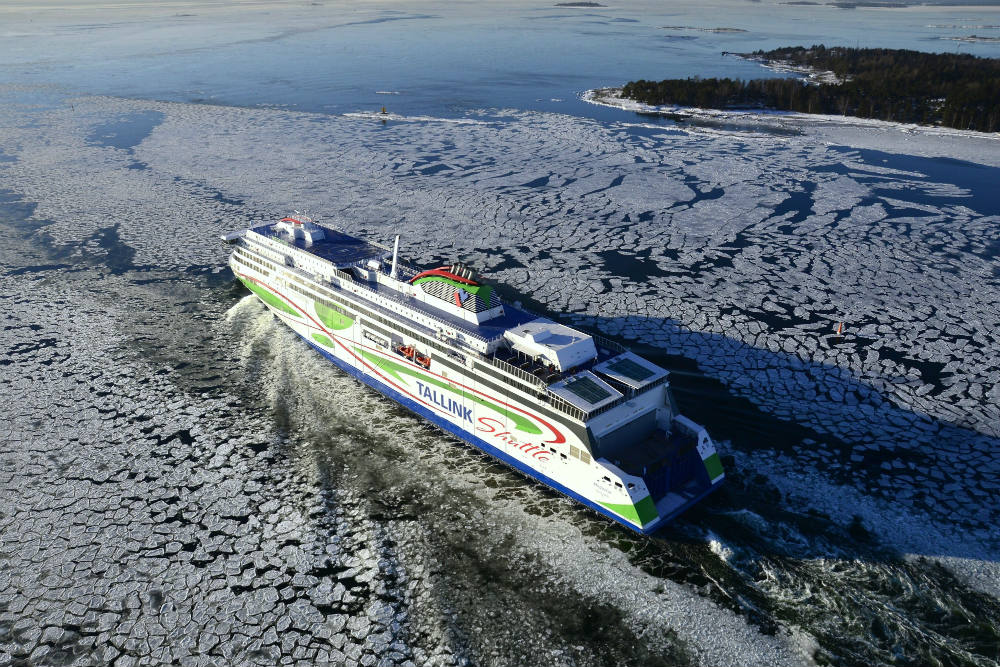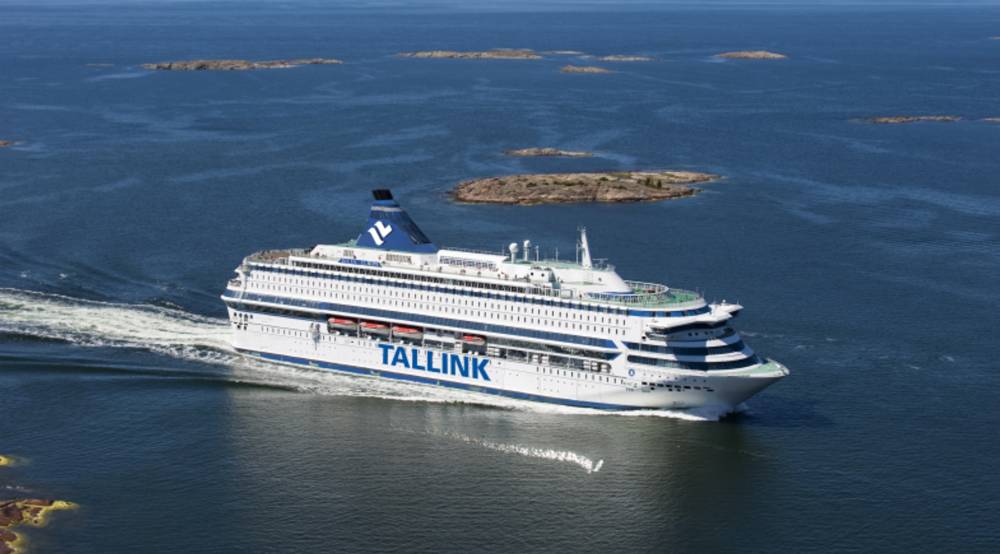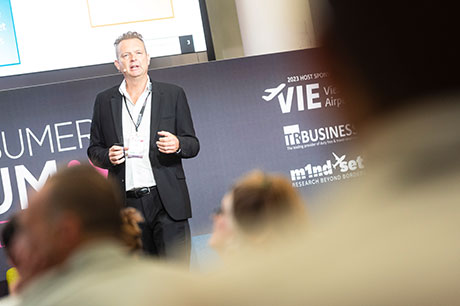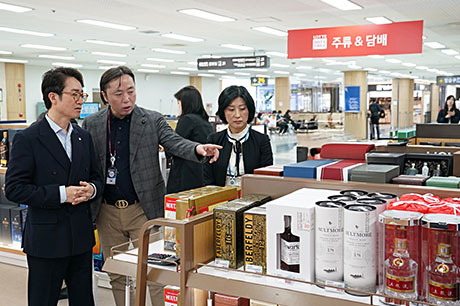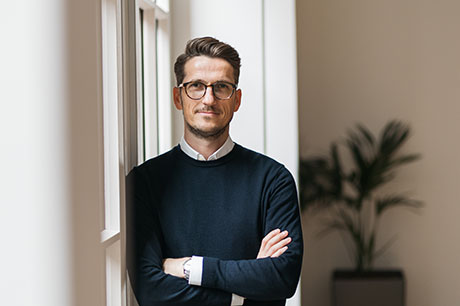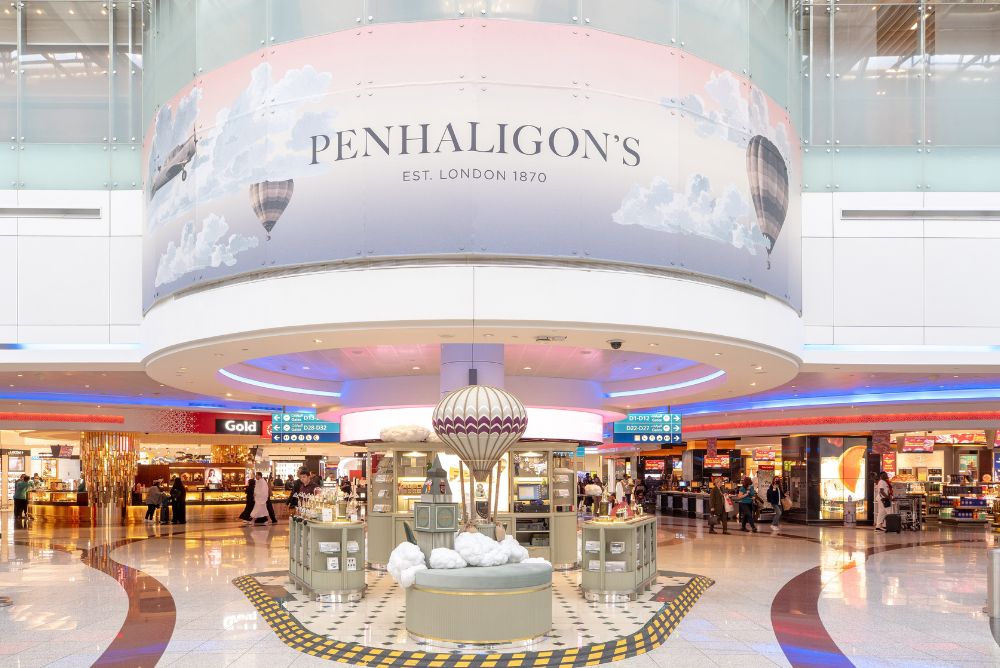Annual Survey preview: AS Tallink Grupp
By Luke Barras-hill |
In a teaser interview ahead of the revered and inimitable Global Industry Survey, published in the forthcoming January e-zine, TRBusiness hears from Baltic short cruise, ferry and shipping firm AS Tallink Grupp’s Head of Duty Free Aimar Pärna.
While a resurgence in travel and spending offered good news in 2021, this was tempered by new waves of restrictions.
The publicly listed firm (Tallink has shares on the Nasdaq Tallinn Stock Exchange with Finnish Despository Receipts listed on the Nasdaq Helsinki Stock Exchange) hopes to see greater stability for its operations in 2022 as it plots a recovery course for the business to reach at least 70% of 2019 levels.
As reported, Tallink released its full-year 2021 results earlier this week, in which it revealed it handled 2,961,975 passengers across all routes in 2021.

Aimar Pärna, Head of Duty Free, AS Tallink Grupp: “Greater future plans are on ice, but not in the dustbin and we have more time to refine them, re-focus and strengthen our plans and ambitions.”
How would you assess 2021?
Overall, a mixed year with more promise at the start of the year with vaccine roll-outs for a breakthrough and easing of travel restrictions permanently. But this quickly turned into more disappointment and a stark realisation in early Autumn that we are not at the end of this virus journey yet.
We have seen revived travel interest and spending desire, but with new waves of restrictions these are always followed by a sharp decline. So, 2021 continued to be a rollercoaster of a year, just like 2020.
What are your expectations for 2022?
We are hoping to see the return of at least a bit more stability and predictability and are hoping [that] our business [will] recover in 2022, at least to 70% of 2019 levels.
Hopefully, the continuing vaccination roll-out together with booster programmes as well as the last two years’ experience will help open and keep open the borders more than we have had in the last few years – and travellers in the Nordics will find their way back onboard the ships.
During the pandemic it has been noted that healthy SPP has been a positive development since shops re-opened. Do you think this is sustainable?
Overall, spending per customer has indeed increased since shops reopened. As customers have less options to spend elsewhere – with much of the entertainment, travel, culture, food and beverage sector organisations’ activities and services extensively restricted and closed – we are seeing people spend more on retail.
Whether this will continue once recovery of these other sectors starts and gathers momentum is questionable, as consumers will once again then have a multitude of options. However, when this is all likely to happen and to what extent compared to the pre-Covid era our spending habits have been impacted permanently… is too early to say. This could still be impacted by so many variables in this evolving and mutating virus situation.
Spending on health products has of course and naturally slightly increased and remained on a higher level than previously, but this is probably not all down to Covid as we were seeing an increased interest in health and healthier lifestyle products already before the pandemic started. We expect to see this trend towards a more healthy and sustainable lifestyle continue.
How has Covid-19 changed your company’s strategy for the travel retail sector?
As the situation with the spread of Covid-19 and the constraints that come with it has been very hectic, the company has had to make quick decisions to ensure that the passengers can travel when the opportunity arises. Tallink Silja Line has opened several non-standard routes, offering customers various opportunities to spend their holidays and visit some new destinations.
The greatest value of a company are the customers and the service and supportive staff onboard and onshore. We have paid great attention to our loyal customers – Club One customers, offering them the most comfortable and pleasant travel experience possible. Even in a situation where operating our ships was not always possible due to the Covid-19 virus, Club One customers had the opportunity to purchase travel retail products through the Tallink web-shop.

First-look images of the new retail offer onboard the MyStar shuttle vessel emerged in December. Click here to view.
The company also pays attention to the wellbeing and health of its employees. Strategically, it has been necessary to pay more attention to the company’s costs and minimise them. Many of the decisions made have not been easy, but we believe we have done our best to keep the company sustainable. In the area of travel retail we have had to significantly develop our online channels and capabilities over the last few years.
In terms of a strategic refocus, we have needed to put our ambitious global expansion plans on hold for the time being and redirect our focus onto core business, core markets and core market customers. This means, greater future plans are on ice, but not in the dustbin and we have more time to refine them, refocus and strengthen our plans and ambitions.
Do you think the travel retail industry has been more proactive in addressing sustainability concerns since the start of the pandemic? Which aspects need addressing most urgently in your opinion?
The travel industry has probably not been able to address the sustainability issues more than before the break-out of Covid-19, as it has had to be too pre-occupied with survival.
Our own experience also shows that we have wanted to do more in the area of sustainability over the last two years and had great plans for doing so, but due to resource constraints and constant last-minute re-focusing of core business and less employees to get the job done, we have not achieved as much as we had hoped. We hope to have more opportunity to focus on sustainability in 2022.
Can it be argued that luxury products are more sustainable due to their perceived higher quality and less-disposable attributes?
We do not believe that the quality of a product or its classification as a luxury product is a sign of sustainability. Rather, it is a question of people thinking about buying a quality product that is made in a neighbouring country; valuing the work of local producers; spending less resources on transport and thus the environment; or buying a high-end luxury product that has not been produced in an environmentally friendly way and consumed resources. The impact on air traffic is significant. The choice is our own.
As retailers, we have an obligation to get more information from manufacturers on how and with what environmental impact their product is made. In order to make a purchase decision, customers are more and more coming to ask us and retailers.
The crisis has affected a shift in consumers’ perceptions of brands and services. As a company, how are you responding?
As a company, we value the quality of the services and products that we offer. You must be honest and transparent with your customers. This applies to both services and products sold. Communication with customers is the priority – before, during and after the trip.
Stay close to TRBusiness to access the Global Industry Survey.
Alcohol insights: Conversion up, spend down in Q4
Conversion of visitors in the alcohol category in duty free has risen to 54% in Q4 2023,...
Men buy and spend more in travel retail says new research by m1nd-set
Men have a higher conversion rate and spend more when shopping in travel retail, says new...
Saudia Arabia's KKIA unfurls T3 duty free expansion
King Khalid International Airport (KKIA) has unveiled the first stage of its much-vaunted duty...

In the Magazine
TRBusiness Magazine is free to access. Read the latest issue now.

 Trbusiness. The travel retail Trbusiness. The magazine for global retail and duty free professionals.
Trbusiness. The travel retail Trbusiness. The magazine for global retail and duty free professionals.
